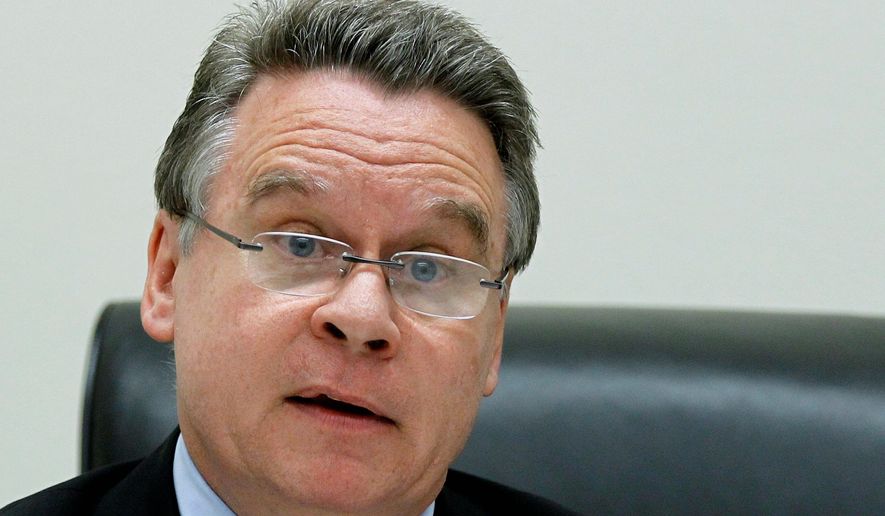Lawmakers on Tuesday expressed concern at what they said was the low priority the Obama administration is giving religious freedom and human rights in international agreements, at a time when persecution and violence against minority faiths are on the rise around the world.
At a House Foreign Affairs subcommittee hearing on Capitol Hill, representatives pressed the State Department point man on religious liberty to give a higher profile to such issues and questioned why human rights issues were not given more attention in deals such as the proposed Trans-Pacific Partnership Asian trade deal.
“If we don’t act, the problems will only get worse,” warned Rep. Chris Smith, the New Jersey Republican who chairs the global human rights subcommittee. “The world is experiencing a crisis of international religious freedom that poses a direct challenge to U.S. interests in the Middle East, Central and East Asia, Russia, China, and sub-Saharan Africa.” With Christian communities under attack in the Middle East and North Africa, rising reports of anti-Semitism and pitched battles between rival strains of Islam, “the topic [of religions freedom] could not be more important or timely,” said Robert George, chairman of the U.S. Commission on International Religious Freedom, told the committee.
A recent Pew Research Center study estimated that 75 percent of the world’s people live in countries where religious persecution and violence are oppressive and ongoing. Lawmakers expressed dismay that human rights standards and sanctions are not being strongly enforced in U.S. deals with other countries, like Pakistan, whose “blasphemy laws” have brought jailed hundreds of religious minority members.
David Saperstein, ambassador-at-large for international religious freedom at the State Department, told the hearing his office has been working to create partnerships with other countries to promote freedom of religion and advocate for religions minorities under persecution.
But, he acknowledged, “we continue to face daunting, alarming and growing challenges to religious freedom around the world.”
SEE ALSO: Ex-Im Bank reauthorized by House
But some lawmakers said suggestions of progress and greater attention were undercut by reports from the field.
“Listening to your testimony, reconciling [that] with reality or perceived reality, is very difficult to do,” said Mark Meadows, North Carolina Republican. “When you talk to people on the ground, when you talk to others, they believe the State Department doesn’t make it a priority.”
Mr. Smith contended that the humans rights provisions in the 12-country TPP were “feckless” and “ineffective,” when the U.S. could have used its leverage and economic clout to pressure other countries to protect religions minorities as part of the deal.
Mr. Saperstein’s office, in its most recent report, has identified nine countries as “countries of particular concern” for consistent religious abuse and intolerance: Burma, China, Eritrea, Iran, North Korea, Saudi Arabia, Sudan, Turkmenistan and Uzbekistan. But the independent, bipartisan USCIRF, in its own report issued in April recommended that more countries be added to the official list, including such key U.S. allies as Egypt, Iraq, Pakistan and Nigeria.
Mr. Smith noted in some cases the State Department has appeared to shy away from putting countries on the concern list or renewing countries on the list, calling it a “reluctance” to negotiate and demand progress on human rights and religious freedom.
“This pattern troubles me,” he said.
SEE ALSO: House GOP begins impeachment against IRS chief
Mr. Saperstein responded, “It is absolutely true there are problems that emerge over the years, they come in ebbs and flows, they change over the years.”
• Meghan Bartlett can be reached at mbartlett@washingtontimes.com.




Please read our comment policy before commenting.